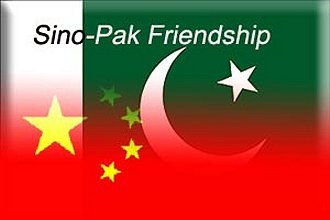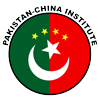Regional Implications of Pak-China Relationship
Source : Pak Tribune Date : May 28, 2013
 |
Pakistani nation very warmly welcomed newly elected Chinese Premier Li Keqiang in his second home on 22 May 2013. He is on his first trip to abroad. Mr. Asif Ali Zardari, President of Pakistan, Prime Minister (retd) Justice Mir Hazar Khan Khoso, Chairman Senate Nayyar Bokhari, the Services Chiefs, ministers of the caretaker setup, ambassadors and senior officials received the Chinese leader at Islamabad airport.
Designate Prime Minister Mian Muhamad Nawaz Shreif and heads of all political parties have attended a luncheon and dinner hosted in the honour of the respectable at the Aiwan-e-Sadr and Prime Minister House.
Pak-China leaders have also concluded and signed 11 pacts having strategic significance, economic development, fiber optic and increasing cooperation in energy sector. On 23 May, Future Prime Minister Nawaz Shreif and Army Chief General Asfaq Pervaiz kiyani in two separate sittings have carried out negotiations on energy crises, civil nuclear deal and matter of military interests. Chinese leader assured helping Pakistan in baling out from said crisis.
In fact, China is our "all-weather friend" now has been converted into 'iron friend'. Therefore, it would not be wrong in saying that Sino-Pak friendship which was established in 1950 is now higher than 'The Himalayas Range'. It's beyond geographical and political boundaries. In this connection, a day before entering into Pakistan, the Chinese leader has very rightly stated that Pak-China relationship is ahead of political changes in both the countries. Thus, we can say, that friendship between Sino-Pak is not between two states; in fact it is between two nations. Pakistan is the first country that acknowledged China when she as republican state appeared on world map in 1948. Nawaz Sherif also asked Chinese leader to take steps in increasing the volume of trade.
Notably, Pakistan-China trade has touched the figure of over $ 12 billion in 2012. A major development in bilateral trade was the Preferential Trade Agreement (PTA) signed in 2003 which was followed by a Free Trade Agreement (FTA) in 2006. In the last three years, Pakistani exports to China have almost tripled to $ 3.14 billion. China is currently Pakistan's largest single country trading partner. Moreover, both the states are the largest trading partners in South Asia too. This puts us firmly on track to achieve the trade target of $ 15 billion in the next few years.
During this visit Mr. Li has shown concurrence of widening Karakoram Highway which starts from the Xinjiang region of China and end in Abbottabad. He also urges of opening new economic corridor from China to Gwadar. China is fully aware of the security challenges are being faced in Balochistan province by the Pakistan. She also knew that, how much Islamabad is being pressurized over IP Gas Pipeline Project.
It is mentionable here that, foreign elements never ever missed an opportunity of exploiting Baluchistan's security issue on the occasion of important events in Pakistan. For example, on 23 May 2013, during Chinese premier leader's tour, foreign sponsored elements blasted explosive laden Rickshaw (a vehicle) hit with the security elements when plying on the road in Quetta. As result of this blast, 11 security persons killed and many injured. Foreign hands purposefully marring up the security situation of Balochistan so that Islamabad and Beijing should not able to operate strategically important port "Gwadar". Operating of port under Chinese control, firstly, will bring revolutionary changes in the life poor people of Balochistan and secondly will also be one of the main hindrances in American' objectives of containment of China, holding Central Asian Region, increasing influencing in Indian Ocean and opening new economic venues while using shortest possible routes from northern Chinese provinces to Africa.
In 1972 Islamabad has also paved the path in establishing bilateral relationship between US-Sino during Nixon regime. Earlier, Z.A.Bhutto (then Pakistani foreign minister) and Hillary Kissinger (then sectary of State) played the pivotal role in toning down of the tension and establishing acceptable relationship between two states. In 1962, Pakistan openly supported China in Indo-Sino war. Similarly, China always principally supported Pakistan stance over Kashmir issue and condemned Indian aggressions against Pakistan in 1965 and 1971. Former Chinese Premier Wen Jiabao powerfully qualified this relationship by stating, "China-Pakistan relations have withstood the tests of internationally changing situations and have become a model of living in amity among countries."
Chinese Premier Visit to Pakistan has significance value and would be viewed in the context of changing regional political, security environment and its strategic implications after leaving of US led ISAF forces from Afghanistan in 2014. We all knew that US since 9/11 is occupying Afghanistan and established her bases in the name of elimination of terrorism. Pragmatically speaking, Washington always tried to increase her influence in Asia.
In this regard, particularly after the cold war era, the epicenter of Washington's policies is revolving around the questions like; 'how to contain China militarily, how to restrict Chinese increasing political interests?, how to compete or stop rapid Chinese economic growth, how to beat Pak-China strategic partnership of operating the Gwadar Port, developing Balochistan and last but not the least, how to control Asian region directly or through dominance of her watchdogs (India, Japan and South Korea).
US likely move could be to tighten her hold on Pacific and Central Asia in collaboration with South Korea and Japan. Regarding control of Indian Ocean, Washington is relying upon India. In this regard, US strategy would be to shift her forces physically in South Korea and Japan while leaving behind the strong mobile forces in Afghanistan. The purpose of establishing mobile bases would be to look after US and western interests in the area after moving back of major US force. Therefore, China, Pakistan, Russia, North Korea, Iran, Turkey and Sri Lanka are the leading countries those should sit together and establish some platform to architect regional security, tackle the emerging potential threat, judicious use of regional resources for the economic growth and countering US design of strengthening uni-polar system.
Pakistan and China are determined to eliminate terrorism and have proper mechanism of countering separatism and extremism. Both countries can also play their role in creating a stable and peaceful Afghanistan post-2014. Both countries are also firmed to pursue the goal of peaceful development of the region. Pakistan has taken very practical measures of stopping militants crossing of Uzbak and others towards China's western region of 'xiao kang'.
Pakistan always condemned the activities of militants of The East Turkestan Islamic Movement (ETIM). This militant Muslim separatist group is operating in Xinjiang province in northwest . Both countries are also convinced that China's western region is very well connected with the markets in South, Central and West Asia as well as the Middle East. Similarly, Russia can also be provided trade route till Gwadar Port. Pakistan provides a natural corridor for regional growth by connecting western China to the broader Asian region. China and Pakistan should re-inaugurate the old Silk Route, which will qualitatively change the regional economy. Gwadar Port can play an instrumental role in this regard.
During the last few years US is piling up weapons in Taiwan. According to the media reports, China strongly reacted against Washington administration decision of arm sale for worth $ 6.4 billion dollars to Taiwan. The arms package for Taiwan made out by Pentagon's Defense Security Cooperation Agency includes 60 UH-60M Black Hawk helicopters, 114 Patriot "Advanced Capability" missile defenses known as PAC-3, 12 advanced Harpoon missiles capable of both land-strike and anti-ship missions, as well as communications equipment for Taiwan's F-16 fleet. The package also includes two renovated Osprey-class mine-hunting ships. On this issue Chinese leaders thrashed USA leadership and reveled that double standard of American foreign policy is a chronic disease in Sino-US relations. Beijing also indicated that it would "partially" stop bilateral military exchange programs with the Washington and also suspend talks on strategic security, arms control and anti-proliferation that were scheduled to take place soon. The Chinese Defense Ministry Foreign Affairs Office also summoned the defense attache of the U.S. Embassy in Beijing and lodged a "stern protest" against the proposed arms sale to Taiwan.
Therefore, the said arms supply to Taiwan is an indicator of USA Game Plan of containing China. To implement her plan, she simultaneously started targeting China on two fronts, first is to hit her speedy flourishing economy and other is to pose security threat to China on exterior and interior fronts. Pentagon created armed net around China while supporting India, Taiwan, and landing her troops in Afghanistan. Nuclear Pakistan is a major hindrance in American desire of containing China; therefore Islamabad also never enjoyed too much cordial relations with USA. Intimacy between two neighbouring nuclear powers (Pakistan and China) has never been digested by Pentagon and her Asian ally (India).
In fact, China stance over current arms sale deal to Taiwan is absolutely correct since USA never displayed seriousness in establishing permanent relations with Bejing. The history reveals that overall chine's relations with America always remained under clouds.
In short, Islamabad and Beijing should take on some fast track projects of speedy development of infrastructures to open new economic corridor. America should put off the glasses and pay attention to her domestic affairs rather than seeing day dreams of exclusively leading the world. She has to forego the policy of conspiracies and respect the sovereignty of other countries. Her pet (India & Israel) need to be chained for the permanent global peace. Pak-China phase has now been entered into new phase, which will bring regional peace, prosperity and elevate the life of poor people of South Asia. Moreover, the recent visit of Chinese's Prime Minister Mr. Li to Pakistan will be considered as historic addition of Sino-Pak relationship.
Source: http://paktribune.com/articles/Regional-Implications-of-Pak-China-Relationship-243076.html
